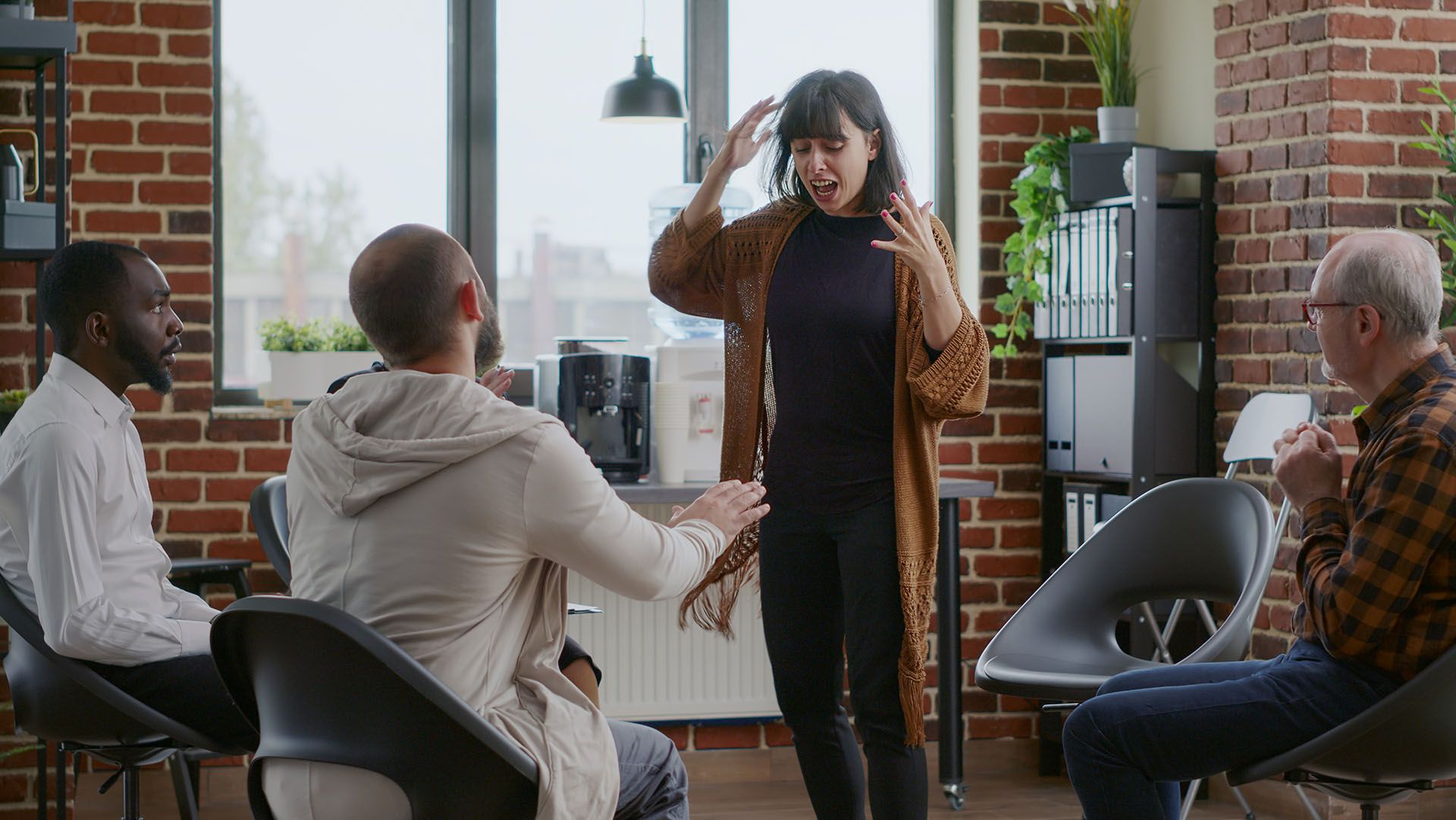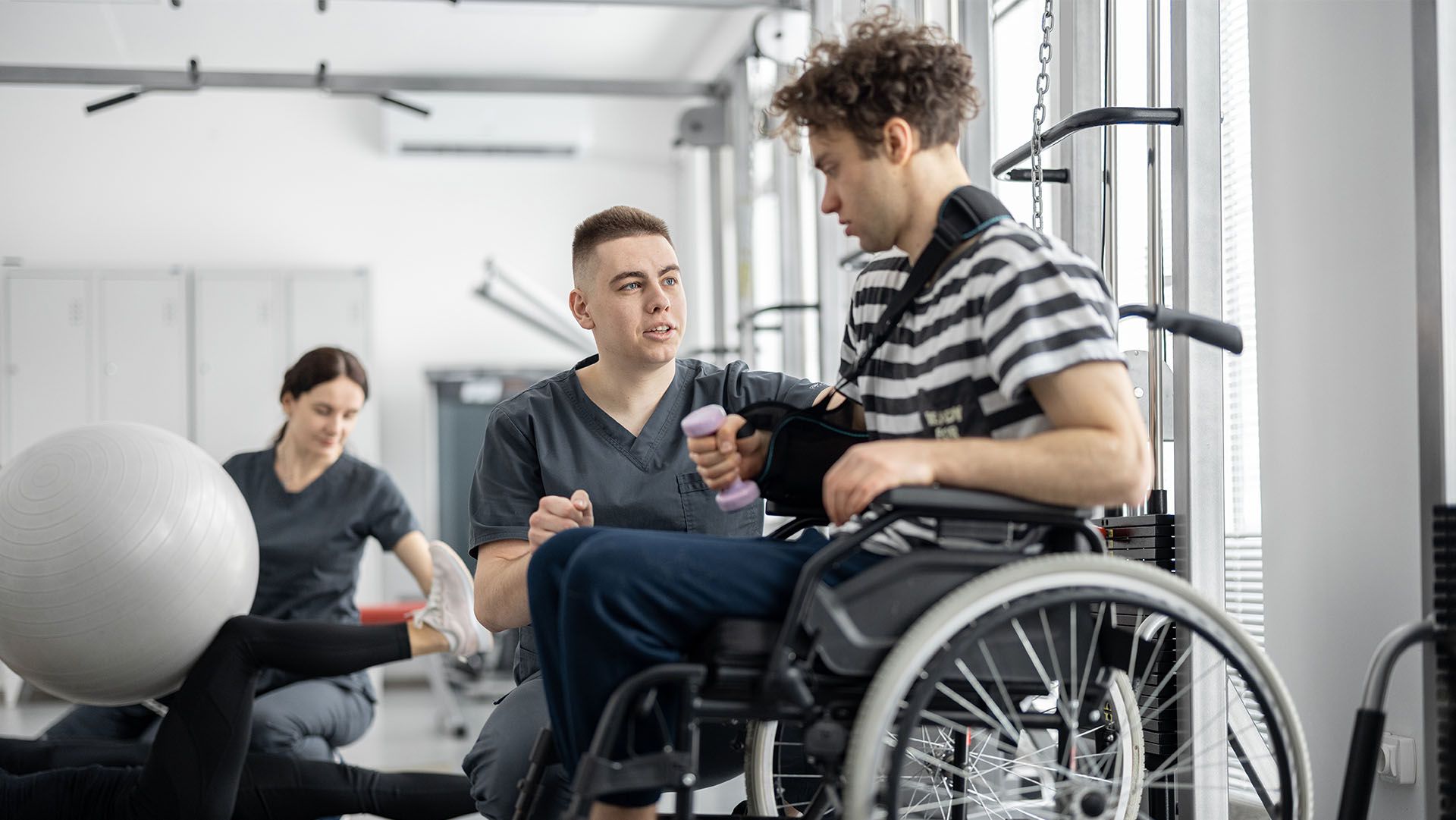What is SMART Recovery
SMART (Self-Management and Recovery Training) programs are community-based, self-empowering groups that are focused on each person finding and maintaining successful, long-term recovery from addiction.
The things you will learn in a SMART program are based on scientific research that is proven to help people make healthier life choices, which can include finally ending your struggle with addiction.
SMART Recovery groups can be used as additional or alternative assistance to those who are participating in 12 step groups such as NA (narcotics anonymous) or AA (alcoholics anonymous) to combat their addiction.
How Does it Work?
Ultimately, the goal of SMART programs is to build and sustain successful long-term life changes that will help you abstain from your addiction. This program is based on cognitive behavioural therapy (CBT), community support, and guidance, and the belief that you alone have the power to change the addictive behaviours that have lead to an unhealthy lifestyle.
SMART Recovery programs target those who struggle with:
- Alcoholism
- Drug addiction (heroin, cocaine, antidepressants, oxycodone, etc)
- Behavioural disorders (food addiction, internet/gambling addiction, etc)
SMART programs often model themselves after the traditional AA foundation of accessibility, community support, and confidentiality. However, many people find SMART programs to be more helpful than a traditional 12 step program due to SMART Recovery’s all-encompassing 4-Point Process.
- Building and maintaining a motivation to change.
- Acknowledging and coping with urges to use.
- Managing thoughts, feelings and actions in a healthy way, without addictive behaviours.
- Living a well-balanced and positive lifestyle to maintain sobriety.
SMART Recovery programs aren’t just another community support group to help you manage your addiction – there is a real science-based approach that puts a key emphasis on self-empowerment. The key to SMART recovery programs is to help YOU live a better life in ways that will work best for YOUR situation.
The reason SMART Recovery programs work so well is that the program is designed with the knowledge that you are the only one who can become an expert on the addiction you’re struggling with because addiction looks different for everyone.
SMART Recovery Tools & Techniques
Addictive behaviours, although most of the time detrimental, do serve a purpose in our lives. We use these behaviours to cope with problems in our life. Unfortunately, our addictive coping mechanisms usually only help us in the short term and actually cause even more problems long-term.
Some of the tools commonly used in SMART Recovery include:
- Stages of Change
- Change Plan (worksheet)
- Cost/Benefit Analysis of Addiction (worksheet)
- ABCs of Rational Emotive Behavioural Therapy (REBT)
- DISARM (Destructive Imagery and Self-Talk Awareness & Refusal Method)
- Role-playing and rehearsing
- USA (Unconditional Self Acceptance)
- HOV (Hierarchy of Values)
With the help of SMART recovery programs, you can learn healthy coping mechanisms that don’t enable your addictive behaviours, ultimately making it easier to live a substance-free lifestyle.
SMART Recovery programs place importance on the following key points that will ultimately give you the tools listed below in more detail, to reconstruct your life without addictive or negative behaviours, which will help you maintain sobriety for years to come.
Self-Responsibility, Self-Motivation & Self-Discipline
Part of what makes SMART recovery programs so successful is that they help you strip away the barriers you put up to defend your addictive actions.
You are the only person who is capable, who has the power to change your life for the better. Motivation from outside sources like friends and family is a great start, but SMART recovery programs help you dig deeper into yourself to find reasons YOU want to get sober and stay sober.
Replacing Self-Destructive Thoughts/Behaviours with Rational, Healthy Beliefs/Actions
Once you have the motivation to change, you need to put the work in. Replacing learned behaviours can be extremely difficult, especially if your struggle with addiction has been an on-going battle for years.
Self-destructive thoughts and behaviours are often what lead to relapses, and the key to avoiding relapse is learning how to step out of your normal behaviour and ask yourself: Is this a healthy behaviour?
Setting Realistic Goals & Milestones and Being Patient With Yourself
One of the biggest causes of relapse can be the pressure of staying clean. Looking at this as a lifestyle change can help you set realistic small goals in the beginning and slowly build to creating milestones for yourself that will help you measure how far you’ve come.
Be patient with yourself, this is not an overnight process and there will be times when you’re taking two steps forward and one step back…but even then, you’re still taking one step forward.
Accepting and Recognizing Impulses and Urges to Use
Just because you want to be sober, doesn’t mean your body suddenly rids itself of the urges it has. Addiction isn’t just a behaviour, it’s physical dependence. Urges and impulses are bound to happen, but the key to remaining sober isn’t to ignore the urge.
The key to living a healthy, sober lifestyle is accepting and recognizing when those urges happen and using different coping mechanisms instead of relapsing.
Applying Healthy Lessons You Learn to Everyday Situations to Create a Healthy Lifestyle
Addiction isn’t just about your substance of choice, it’s about an entire lifestyle you’ve cultivated that enables your continued use. Ending your use will inevitably include changing your lifestyle.
Applying the life lessons you learn in cognitive behavioural therapy, individual counseling or group sessions can ultimately help you create a kind of lifestyle that promotes healthy and clean living.
How Do I Know if SMART Recovery is the Best Option for Me?
If you or someone you know have been struggling with an addiction, chances are you have been to an inpatient/outpatient rehab center that has had things like 12-step programs, or maybe you’ve even sought out AA/NA meetings in your area to help you stay sober.
SMART Recovery programs have grown so much over the last 10 years. In fact, in the United States alone, SMART reached over 1500 meetings in 2015. And it’s spreading, too – various SMART programs have popped up in the UK and Australia in the last few years.
SMART Recovery programs might be for you if you are looking to:
- In search of long-term sobriety and haven’t had much luck in attending traditional AA/NA meetings
- Looking for ways to address the real problem of your addiction: your addictive behaviour and lifestyle that is enabling you to continue your drug/alcohol use
- Looking for an all-encompassing place that can help you at every step of your journey from withdrawal and relapses to recovery
How is SMART Different Than Alcoholics Anonymous or Narcotics Anonymous?
The National Institute on Drug Abuse (NIDA) conducted a study that compared the effectiveness of traditional 12 step programs like AA to SMART recovery programs and the results are quite interesting.
A 12 step intervention is proven more effective in decreasing alcohol use and increasing social interactions, however, with these programs tend to come the worsening of medical problems, health status, employment situations, and psychiatric hospitalization. Comparing this to SMART recovery programs that are then proven to be more effective in the areas of improving overall health and employment statuses.
The same study suggests that the SMART recovery program retained participants better than the 12 step programs, with less accountability to attend and engage in the program being the main difference between the two.
Along with those findings, there are a few other key differences between 12 step therapies like AA and SMART recovery programs that are listed below.
| 12 Step Programs (AA/NA) | SMART Recovery Programs |
|---|---|
| Relient on building a relationship with some form of a higher power, looking outside of yourself to find meaning and using that to drive your recovery. | Bases the program on self-reliance, independence and the power of YOU – maintaining that you must have self-control and find some source of self-empowerment to beat your addiction. |
| 12 step programs are usually run by a peer and they are not run by people who have any sort of training in mental health/addictions or social work. | SMART programs are typically run by a trained leader, this can be someone who is in recovery or it could be a trained therapist or counselor. |
| 12 step programs use the disease model of addiction with understanding is that if you are an alcoholic or addict, you are that way forever. | SMART recovery programs also use the disease model of addiction, but their view on the addiction itself is a bit different. |
SMART Recovery Meetings
SMART recovery meetings are available throughout the world in person as well as online, and are open to anyone, even family members and friends of those who are struggling with addiction.
It’s recommended that you attend a few meetings before deciding whether or not to stick with the program to give yourself time to learn more about how it works and decide how it will fit into your long-term recovery plan.
SMART Recovery Can Also Help Friends and Family of Loved Ones Who Are Struggling With Addiction
Unlike typical 12 step programs, there is no addiction requirement for attending a SMART recovery meeting. In fact, many of these programs open their doors to family members and friends who are affected by a loved one’s addiction.
There are also several Family & Friends meetings popping up within the SMART Recovery community, where people can share their struggles and stories with others who understand what it’s like to have a family member or loved one struggle with an addiction and how that can affect your life.







